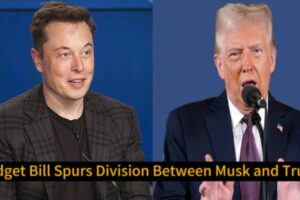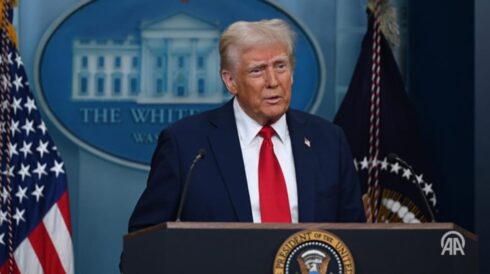President Donald Trump announced Monday that he is pardoning Scott Jenkins, the ex-sheriff of Culpeper County, Virginia, who was sentenced to 10 years in prison for bribery and fraud earlier this year. Jenkins was found guilty in December 2023 of accepting $75,000 in cash bribes in exchange for granting auxiliary deputy sheriff titles to unqualified individuals, including two undercover FBI agents.
In a post on his Truth Social platform, Donald Trump said Jenkins and his family had been “dragged through HELL by a Corrupt and Weaponized Biden DOJ.” Calling Jenkins a “wonderful person,” Trump insisted the former sheriff was “persecuted by the Radical Left ‘monsters’” and vowed he “will NOT be going to jail tomorrow.” The statement signals Trump’s continued efforts to spotlight what he calls prosecutorial overreach by the Justice Department under President Joe Biden.
Conviction and Sentence: A Brief Recap of the Jenkins Case
Scott Jenkins, 53, was convicted by a federal jury of 12 felony charges, including conspiracy, honest services fraud, and bribery. The case centered around Jenkins’ acceptance of payments from at least eight individuals — two of whom were undercover FBI agents — in exchange for auxiliary law enforcement credentials and other favors.
According to the Department of Justice, Jenkins offered badges and gun privileges to people with no law enforcement experience or background checks. He even lobbied for one bribe payer, a convicted felon, to have their gun rights restored. Prosecutors said Jenkins exploited his public office for personal enrichment and compromised public safety by granting official privileges to unqualified civilians.
During his trial, Jenkins took the stand in his own defense, denying any connection between the cash payments and the badges. However, testimony from the undercover agents, who handed Jenkins envelopes containing $5,000 and $10,000 immediately after receiving their credentials, formed a key part of the prosecution’s case.
Donald Trump’s Justification: Politics Over Justice?

Donald Trump argued that Jenkins attempted to present exculpatory evidence but was silenced by U.S. District Judge Robert Ballou, a Biden appointee. Trump accused Judge Ballou of going on a “tirade” and claimed that Jenkins was “not allowed to defend himself.” The former president’s remarks follow a pattern of his public criticism of federal judges and prosecutors involved in cases against his allies.
“Scott Jenkins is a victim of selective prosecution,” Trump wrote. “Instead of going to jail, he will now have a wonderful and productive life.” Critics, however, argue that Trump’s use of presidential clemency continues to erode public trust in the rule of law, turning legal accountability into political retaliation.
Acting U.S. Attorney Zachary T. Lee had earlier said Jenkins “violated his oath of office,” emphasizing that the Department of Justice would not tolerate public officials who used their authority for “unjust personal enrichment.”
A Pattern of Pardons: Loyalty Rewards in Donald Trump’s Political Circle
Jenkins joins a growing list of Donald Trump allies who have received presidential pardons. On the first day of his 2025 presidential term, Trump issued clemency to over 1,000 individuals, many of whom were involved in the January 6 Capitol riot. His past clemency decisions have included controversial figures like former Illinois Governor Rod Blagojevich, who was convicted of attempting to sell Barack Obama’s Senate seat, and Las Vegas politician Michelle Fiore, who misused public funds for personal expenses.
The pardon of Jenkins further fuels concerns that Trump’s clemency decisions are driven by political loyalty rather than legal merit. Jenkins has been a longstanding Trump supporter, frequently posting pro-Trump messages on social media, including vocal support for Trump’s claims of a “stolen” 2020 election.
Legal and Political Repercussions: A Divided Public Reacts
The pardon has sparked fierce debate across political lines. Supporters view Jenkins as a victim of a politically motivated prosecution, praising Trump for standing by a loyal public servant. Detractors, however, warn that such pardons undermine the credibility of the justice system and set a dangerous precedent for public corruption.
Legal analysts note that Jenkins had already filed an appeal, and Trump’s intervention may sidestep the appellate process altogether. Critics say the pardon not only disrupts the legal system but sends a message that public officials can escape accountability if they remain politically aligned with the president.
As Trump continues to shape the national conversation around crime, justice, and political loyalty, the Jenkins pardon highlights the widening divide in how justice is perceived — and administered — in modern America.














